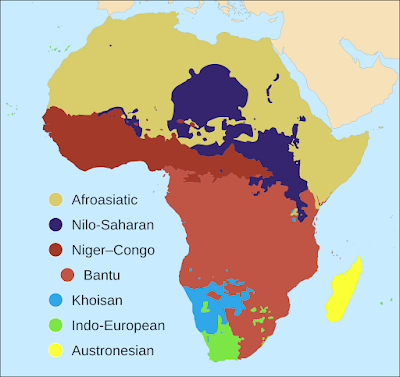AFCON 2027: Uganda, Kenya and Tanzania co-hosting has implications beyond football
On September 27th 2023, the Confederation of African Football President, Patrice Motsepe, announced in Cairo that East Africa's “Pamoja Bid” had been successful. The announcement meant that Uganda, Kenya, and Tanzania would be the joint hosts for the 2027 Africa Cup of Nations (AFCON).
This historic decision marked a transformative moment for East African football and the broader CECAFA region because it had been 47 years since an East African nation – Ethiopia, to be precise – had hosted the continental football tournament. The 2027 AFCON will not only be the first to be hosted in the CECAFA region since then but it will also be the first edition co-hosted by three distinct nations.
The significance of this shared hosting will be felt in many areas. Not only does it provide a platform to enhance regional unity, but it also magnifies the cultures and capabilities of the three original members of the East African Community.
Moreover, the collaborative nature of the event is anticipated to set a new standard for future partnerships in such grand endeavours.
Implications and Impact
The spirit of unity and regional pride is already palpable across East Africa. Hosting AFCON together is anticipated to be a binding force, igniting a sense of collective accomplishment among these nations.
In an era where tourism holds significant economic promise, the prospect of introducing a regional tourism visa could be a game-changer. Such an initiative has the potential to position East Africa firmly on the global travel map, drawing enthusiasts and tourists to its unique blend of natural beauty, culture, and heritage.
The AFCON event's economic ripples promise to be profound and multifaceted. Retail outlets, from the bustling local markets to swanky malls, anticipate a surge in footfall. The transportation sector is gearing up for increased demand, be it local taxis, long-haul buses, or international flights. The hospitality industry, encompassing hotels, guesthouses, and restaurants, is poised for a windfall. The unique culinary delights of East Africa, combined with its signature hospitality, are set to be showcased on a grand stage. Furthermore, the nightlife, often a blend of traditional performances and modern beats, is eager to welcome the influx of both local and international revellers.
Infrastructure development will undoubtedly be one of the most tangible legacies of AFCON 2027. Stadiums will need renovations, roads might require expansions, and public transport systems will need enhancements to cater to the expected surge in demand. Uganda has promised to build two more stadiums in Hoima and Lira City, in addition to Namboole, which has a 45,000-seater capacity. This infrastructural boost is not merely about meeting the event's immediate needs; it's about elevating the global stature of the hosting nations. Properly executed, these developments could serve the regions for decades to come.
This event is more than just a sporting fiesta; it's an invitation to the world to witness the cultural opulence and limitless potential of East Africa.
Challenges and Concerns
For all the potential benefits, the road ahead isn't without bumps. Advocacy for the region to rally behind this initiative, irrespective of their sector, is paramount for the joint venture's success. This event has also underscored the imperative for greater synergy within the East African Community (EAC) – not only for a triumphant AFCON but for a broader reinvention.
Some propose the establishment of specialised event capitals within the EAC, where each member could concentrate on domains like arts, culture or sports, backed by dedicated infrastructure. Achieving this would demand a depoliticised regional instrument to mobilise funds and oversee such developments. Political reconfigurations, including synchronised elections and the institution of a political federation, might also be imperative.
Yet, the path to AFCON 2027 is already facing challenges. Ugandan lawyer, Male Mabirizi, has petitioned CAF, citing Uganda's democratic shortfalls and infrastructural inadequacies. In Kenya, county governors Prof. Anyang' Nyong'o and Fernandes Barasa have voiced reservations about game venues, advocating for the inclusion of regions traditionally seen as football's heartland.
The Way Forward
Despite the hurdles, the promise of AFCON 2027 for East Africa is monumental. While addressing the concerns is essential, the larger vision of a united East Africa, proudly hosting a continental spectacle, is a dream worth pursuing.

_WITH_JOURNALISTS_AT_THE_6TH_ZIONIST_CONGRESS._SEATED_NEXT_TO_HIM_IS_Z._WERNER,_EDITOR_OF_THE_ZIONIST_PAPER,_DIE_WELT._%D7%AA%D7%90%D7%95%D7%93%D7%95%D7%A8_%D7%94%D7%A8%D7%A6.jpg)

Comments
Post a Comment